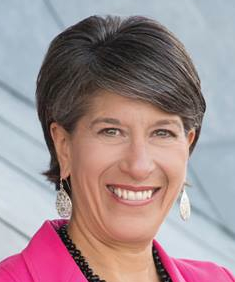Over the last several years, attorney Courtney Bullard has advised on or participated in more than 150 sexual assault investigations on college campuses across the country.
"I specialize in working with colleges in matters involving sexual misconduct," says Bullard. "I conduct external investigations, oversee investigations, provide legal advice on how to ensure colleges are complying with laws that dictate how they respond to allegations of sexual misconduct. What keeps me awake at night is the fact that we are not educating our kids about these issues before they set foot on a college campus. The hook-up culture is rampant. Teens don't know the definition of consent. Nor do they understand the realities of what they might face in college if they find themselves accusing someone of rape or being accused of rape."
The media have certainly brought to light some of these cases, including the Vanderbilt University case where there was a guy on the top bunk who witnessed the rape but pretended to be asleep because he was afraid. He along with those who were involved in the actual sexual assault were found guilty.
"What people see on television is a very narrow picture of what is going on on college campuses across the country," says Bullard. "What I typically see are two students getting wasted and having sex. One believes they were raped; one believes everything was completely consensual. Neither fully remembers the entire encounter. Both of them are forever impacted."
Before you stop reading because you think this would never happen to your child or to your grandchild because they are: going to a small faith-based institution, they are planning to live at home, she is strong-willed and would never put herself in that situation, your son understands consent or that only happens to other people, Bullard strongly urges you to think again. Most of the cases she sees involve freshmen.
"I have sat across from so many parents sitting next to their child in tears saying all of these things," says Bullard. "I have sat across from young women who can no longer finish school because they are unable to recover from what happened. I have sat across from young men whose dream of going to medical school, law school, graduate school, etc. is over because they have been found responsible for sexual misconduct and their transcript is forever marked. I cannot tell you how many times I have heard, 'I did [fill in the blank - smacked her butt, for example] because on TV that's what girls like.' These are not criminal cases/investigations, they are investigations and findings conducted by college campuses."
Bullard believes parents and teens can do a better job of being prepared for college life by being educated on these issues. Students should familiarize themselves with their college's sexual misconduct policy and definition of consent. Parents need to talk with their teen about the difference between healthy and unhealthy relationships.
"For all the parents out there saying, 'I lived large at college and I turned out OK,' I would strongly encourage them to recognize that this is a different time with many variables that were not in play back in the day, including social media."
Bullard believes teens could benefit from taking bystander intervention training so they know what to do if they see someone in a potentially dangerous situation.
"This is one of the most powerful tools we have to make a difference when it comes to dealing with sexual assault," says Bullard. "Make sure your teen has a strategy ahead of time for dealing with potential risks. Teach them how to be good citizens, and do not downplay the seriousness of this issue."
Bullard will be the first to tell you she is not a counselor, but she is absolutely passionate about making sure teens have the information needed to help them make wise decisions when they get out on their own. She will be teaching an informational session on June 24 for rising high school seniors and college freshmen (3 p.m. for girls, 5 p.m. for boys) and an informational session for parents on June 25 at 6:30. The location is still to be determined. If you are interested in your teen attending one of these sessions, you can email her at chb@icslawyer.com for more information.
"So much of the pain I deal with on these campuses is preventable," says Bullard. "We really owe it our kids to give them the information they need in order to have a successful college experience and future."
Julie Baumgardner is president and CEO of family advocacy nonprofit First Things First. Contact her at julieb@firstthings.org.

